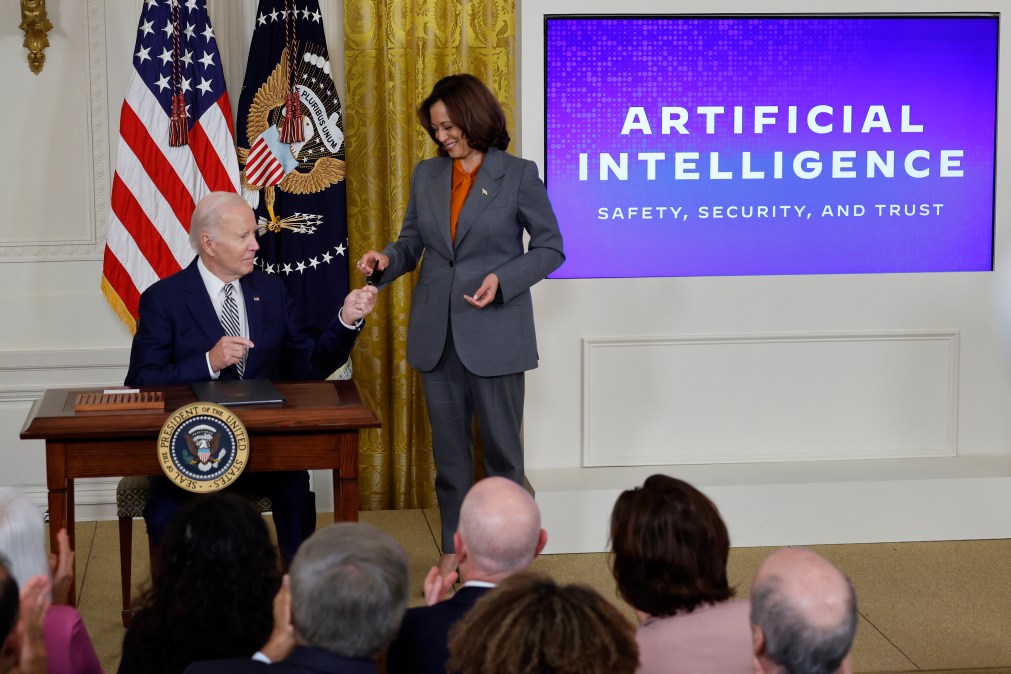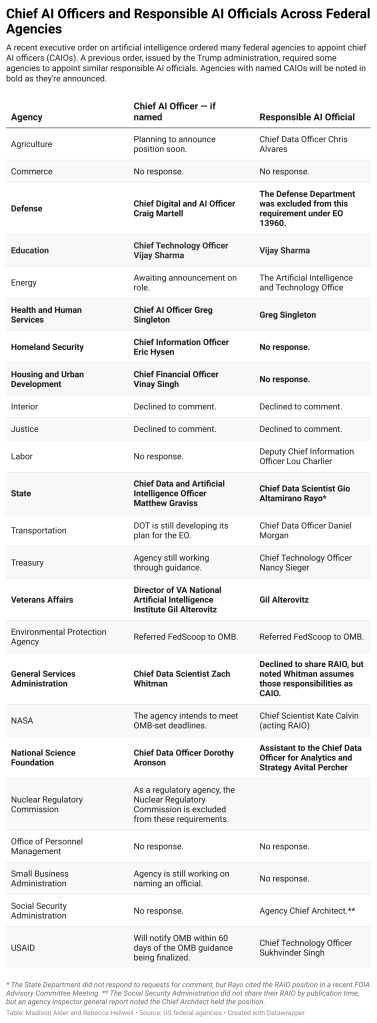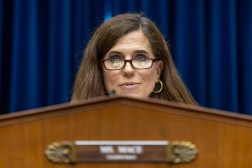Here’s who’s responsible for AI in federal agencies

As part of the Biden administration’s wide-ranging executive order on artificial intelligence, many federal agencies are required to name chief AI officers (CAIOs). Charged with both promoting the use of AI and managing its risks, the officials appointed to this position will hold an enormous amount of power.
According to the order, agencies are required to identify their chief AI officers within 60 days of the Office of Management and Budget finalizing its guidance for federal use of the technology. OMB released a draft version of that guidance for public review in October. That White House memo, if formalized, would require CAIOs to coordinate their agency’s use of AI, promote AI innovation and manage AI risks, while also serving as vice chairs of their agency’s AI governance boards and determining which AI use cases might be considered “safety-” or “rights-” impacting.
While some large agencies publicly had a CAIO before President Joe Biden’s order, such as the Departments of Health and Human Services and Homeland Security, others are starting to select their own. In response to FedScoop inquiries to Chief Financial Officer Act agencies, several — including the Department of Education, General Services Administration, Department of Housing and Urban Development and the National Science Foundation — shared the names of their CAIOs. Other agencies indicated that they are waiting to name their officials until after OMB formalizes the guidance.

FedScoop is tracking the CAIOs as they’re announced in a table available here.
Notably, the executive order also directs the CAIO to take over the responsibilities assigned to existing responsible AI officials, a position created by Executive Order 13960, which was issued by the Trump administration in late 2020. An OMB spokesperson confirmed that, pursuant to the latest executive order, the draft guidance would require “agencies to designate a Chief AI Officer who would serve as the responsible officials for E.O. 13960, in addition to the other roles and responsibilities outlined in the draft OMB guidance.”
Still, some agencies have yet to publicly disclose their responsible AI officials, who were charged with overseeing the implementation of AI Principles created by the order and working with AI-focused interagency bodies. Several agencies, including DHS and the Environmental Protection Agency, would not confirm who these officials were in response to questions from FedScoop.
A major Stanford report into government use of the technology published in December 2022 noted that while agencies were ordered to submit the names of their responsible AI officials to OMB, there was never a public reporting component of this requirement — making it difficult to evaluate whether agencies were actually compliant.




